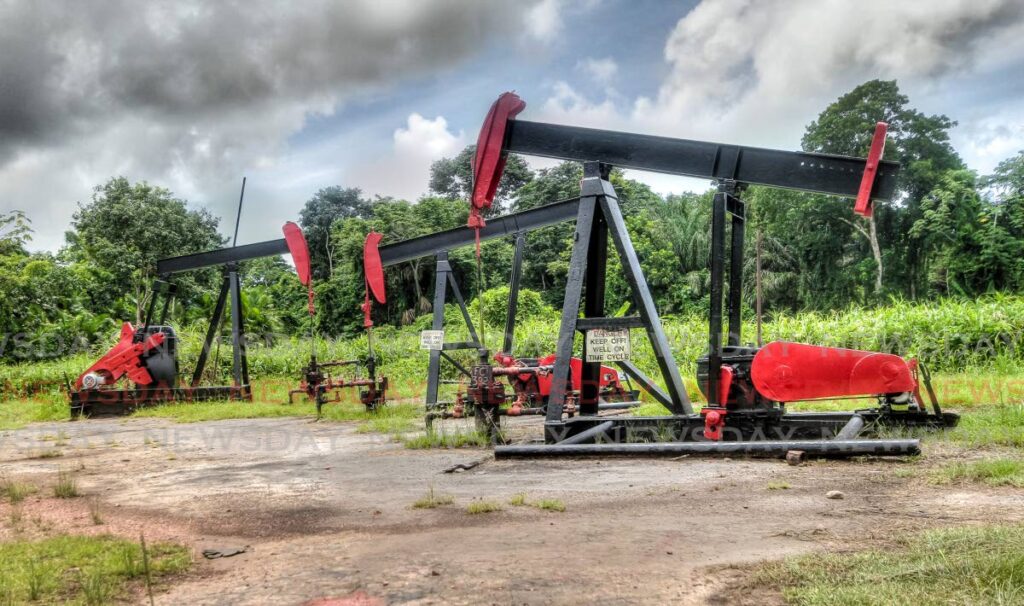Central Bank: Trinidad and Tobago must save some money for later

Deputy Governor of the Central Bank Dr Dorian Noel has advised that TT should start saving now that export prices are high, in the event of a rapid downward trend at a much earlier time than predicted.
He gave the advice while at the Spotlight on the Economy held at the Hyatt Regency, Port of Spain on Friday.
He said export prices are expected to remain high in the coming months but will gradually adjust downward as geopolitical tensions such as the Russian/Ukrainian war and supply chain effects fade. He added volatility will remain the same for another year.
“In such circumstances, it is extremely important that we as a country immediately focus on rebuilding and enhancing our economic buffers which were no doubt weakened by the pandemic and the current economic environment,” Noel said.
“Having adequate financial buffers ensures that the country has the internal capacity to absorb any further macro shocks.”
He also advised that government carefully set out financial policies for the short and medium term as poor policy decisions could slow recovery and a return to sustainable growth, or may have to be revised later on.
Still, he added that goods and services will continue to gradually push upward to reflect market conditions, but the overall economy will benefit from the removal of restrictions which affected it over the past two years, as well as favourable export prices.
In March, oil prices spiked to levels not seen since 2008, after dipping into negative territory in 2020 at the height of the covid19 pandemic. The spike in oil and gas came out of uncertainty stemming from the war which sparked a series of sanctions on oil and gas supplied from Russia.
WTI prices hit a high of US$130/ barrel in March, mere weeks after Russia invaded Ukraine at the end of February – which was the highest prices in about 14 years. Brent crude reached a high of US$139.13, but both eventually settled at US$119.40 and US$123.21 respectively. On Friday, WTI stood at US$87.08 and Brent at US$93.25. Natural gas is also higher than predicted at US$8.89/mmbtu.
Ammonia also benefited from higher prices hitting around US$1,500/tonne. It was the highest prices in TT history, according to reports.
Government based its 2021-2022 budget, on an oil price of US$65 a barrel and estimated its revenue for 2022 to be about TT$43.33 billion, but as fuel and petrochemical prices shot up from March, government received a windfall. In its mid-year review read Parliament in May, the Ministry of Finance estimated additional revenue at about TT$3.081 billion coming out of the higher prices. Some of that revenue was deposited in the Heritage Stabilisation Fund. The ministry also paid out arrears, VAT refunds and outstanding gratuities.
Noel explained that pre-pandemic, TT was well on its way to slowing and reversing a deficit which had been ongoing since 2016.
“In 2019, the economy was on the path to recovery, following the adverse 2014 oil price shock. Real GDP declined by 2.2 per cent. The energy sector was still operating below capacity but recovery of the non-energy sector solidified, growing by 2.2 per cent.”
He said headline inflation was low at 1.1 per cent, unemployment was at 4.3 per cent, the net reserves was about US$7 billion and the repo rate stood at about five per cent. The deficit was narrowed to about 2.5 per cent of GDP and the deficit stood at about 65 per cent of GDP.
Noel said government expanded its social security net in response to the economic fallouts coming at the height of covid19, which came at a great cost.
“The fiscal deficit ballooned to 11.2 per cent of GDP. Adjusted general government debt rose to around 80 per cent of GDP. Were it not for the financial buffers such as the international reserves and the Heritage and Stabilisation Fund of approximately US$13 billion, the domestic economy risked being permanently shipwrecked,” Noel said.


Comments
"Central Bank: Trinidad and Tobago must save some money for later"